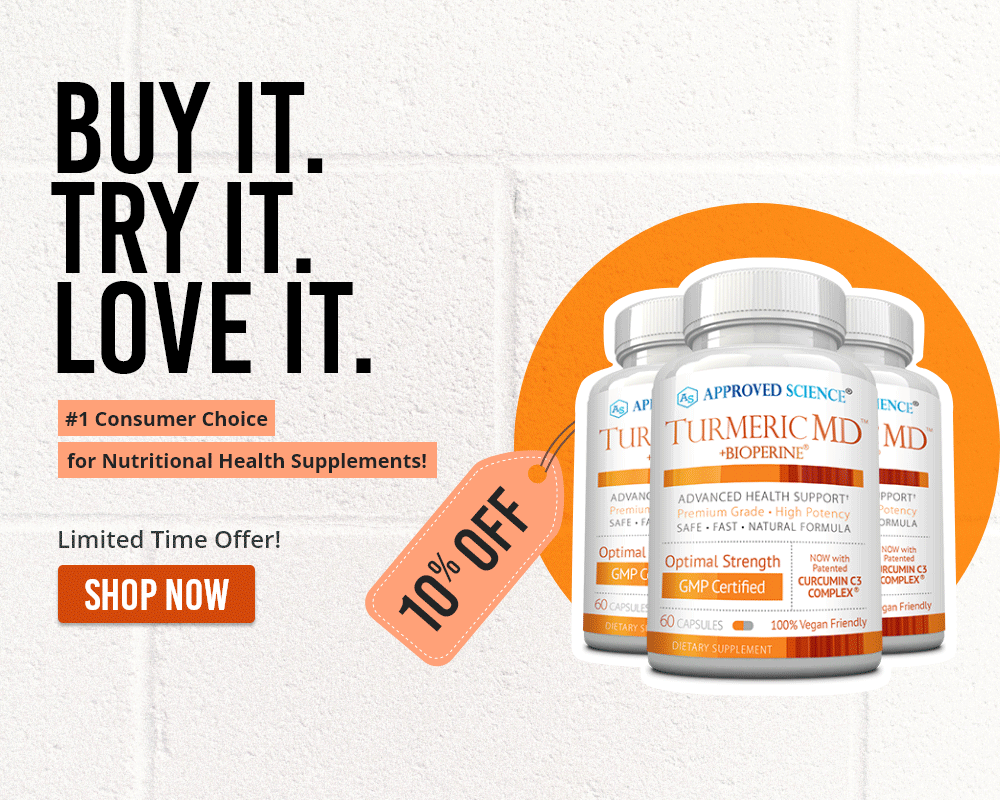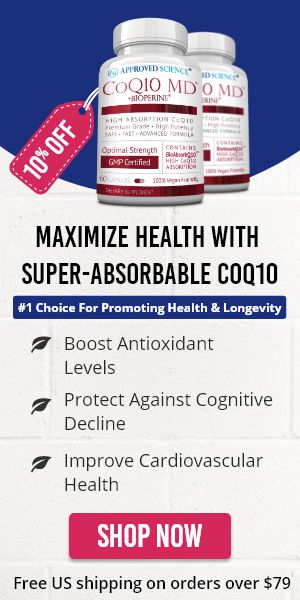How long does it take vitamins to work? This is one of the most frequently asked questions in the industry. You just purchased supplements, and you want to experience the benefits as soon as possible. Unfortunately, nutrition is quite complex, which makes it difficult to find out exactly how long the supplements will take effect.
Some vitamins may take two to three weeks to kick in. Others may take 60 days or even more before the full effect can be felt. It all depends on various factors like the severity of your deficiency, how the body absorbs these types of nutrients, and the quality of the supplement. These are some of the factors we need to take into account when determining the time it takes for a supplement to work.
Factors That Impact How Long It Takes For Supplements To Work
Below are a few common factors that play a crucial role in how quickly you can expect benefits when taking vitamin and mineral supplements.
How Severe Is The Problem Or Deficiency?
The first question to ask is how severe the problem or deficiency is. Think of nutrition like a reservoir. If the reservoir is completely empty, it is going to take a lot longer to fill than if it was half full. If you have very low levels of an essential nutrient like Omega 3 or Iron, it will take a lot longer for the body to replenish them back to a normal level. The same applies to the severity of certain conditions. If, for example, you are suffering from severe hair loss and have not addressed the problem before excess amounts of hair have shed from the scalp, it is going to take much longer than if you had addressed the problem when you first noticed your hair falling out.
What Is Causing The Problem Or Deficiency?
Another factor behind the time it takes for a vitamin to work is what the cause of the deficiency or problem you are experiencing is. It could be caused by genetics, or it could be caused by a poor diet or another underlying problem. If the reservoir has a leak and you don’t bother to seal it, it is never going to fill up to the optimal level. Figuring out what is causing these nutrient levels to deplete will also help to determine the dosage required to see results.
The Type Of Vitamin

The type of vitamin you choose to supplement with can determine how long it will take to feel or see any results. There are two main types of vitamins: water-soluble and fat-soluble.
Water-soluble vitamins dissolve in water and readily absorb into the cells and tissues for the body to use immediately. Due to how quickly the body uses them, water-soluble vitamins need to be replenished daily to avoid any deficiency. Examples of water-soluble vitamins include:
- Vitamin B1
- Vitamin B2
- Vitamin B3
- Vitamin B6
- Vitamin B12
- Biotin
- Folate
- Pantothenic acid
- Vitamin C
Fat-soluble vitamins can only be dissolved in fat. These types of vitamins are absorbed by the globules in the small intestines and then distributed throughout the rest of the body via the bloodstream. Because of this process, it takes the body much longer to utilize them, meaning that it will take longer to feel the effects of a fat-soluble supplement. Examples of fat-soluble vitamins include:
- Vitamin A
- Vitamin D
- Vitamin E
- Vitamin K
- Coenzyme Q10
- Omega 3
Quality of Supplements
Cheap supplements that utilize inferior or synthetic forms of vital nutrients are not going to deliver the results you are looking for even if you continue to take them for months on end. As we mentioned before, nutrition is complex and it takes years of in-depth studies, tests, and research to take a nutrient and put it into capsule form that actually benefits the body without the addition of any harmful preservatives, fillers, or binders.

High-quality supplements are formulated according to industry standards and use ingredients that are natural and have been tested and verified by renowned scientists and researchers.
Things to look out for in high-quality supplements include:
- Products that have been made cGMP approved facility that is recognized by the FDA.
- Product labels that are easy to read and free of fillers and binders.
- Products that don’t make exaggerated claims or promise results in an unrealistic time frame.
- A money-back guarantee.
- Products that have been monitored and tested by third-party organizations.
- Products that are pesticide and contaminant free.
Due to the costs involved with these regulations, some manufacturers cut corners and don’t offer the same level of compliance to make the supplement cheaper to manufacture and to buy. As the old adage goes, “you get what you pay for” and in the case of your health, it is not something you want to take a chance with. Spending the extra dollar or two ensures that you get a high-quality product that will deliver the results you are looking for. Approved Science® checks all these boxes to ensure your safety when it comes to supplementing your health needs.
The Dosage
The dosage is a very important factor that impacts how long it takes a vitamin to work. Trying to fill an empty reservoir with an 8-ounce jug is not going to even make a dent, not to mention external factors like evaporation.
Trying to replenish your nutrient levels with a microdose is going to take a very long time before you see results, and in the case of water-soluble vitamins, you won’t be able to keep up with how quickly the body absorbs and uses them to feel a noticeable difference.
On the other hand, taking megadoses of vitamins and supplements is not healthy at all. Taking a surplus of vitamins can cause nutrients to rise to toxic levels, even if they are water-soluble.
For example, supplementing with 250mg of combined EPA and DHA Omega 3 is not going to deliver results as quickly as you would like, but supplementing with over 5000mg of Omega 3 can lead to excessive bleeding or blood-thinning in some people. The trick is balance. 1500mg of combined EPA and DHA Omega 3 daily is potent enough to deliver results but not enough to cause toxic levels.
Paired Ingredients
We were not kidding when we said nutrition is complex, and this is one of the reasons why. Nutrients rely on other nutrients for absorption and effectiveness. For example, non-heme iron (plant-based iron) can only be fully absorbed and utilized by pairing it with Vitamin C. (Read more to see if you are exhibiting signs you need more Vitamin C.)
Calcium supplements require a sufficient amount of Vitamin D in order to increase the absorption within the intestines. At the same time, Vitamin D cannot be fully utilized without Magnesium or Vitamin K2.
Certain nutrients can improve the ability to absorb and used other nutrients. Turmeric and piperine are a common pairing. Piperine (1) is an active compound in black pepper that helps to enhance the bioavailability of the beneficial compounds in turmeric, making it easier for the body to absorb. Supplements that contain ingredients that work together for absorption, will work quicker than those who skimp on the formula.
Now that we know the different factors that impact the time it takes for a vitamin to work, let’s take a look at a few popular supplements on the market to find out how long it will take to feel the benefits they have to offer.
Biotin – How Long Does It Take For This Vitamin To Work?

Biotin, also known as vitamin H, is a water-soluble vitamin that forms part of the B vitamin class. It plays a crucial role in converting specific nutrients into energy and also maintaining the health of our skin, hair, and nails. The human body cannot manufacture Biotin itself so we have to consume it. While a deficiency in this nutrient is rare, many people increase their intake via supplementation in order to reap the benefits this vitamin has to offer.
Benefits Of Biotin
Seeing that the vitamin is nicknamed after the German words for skin and hair, “Haar” and “Haut,” the most common reason people turn to Biotin is to help replenish thinning locks and rejuvenate the skin. While the exact mechanisms of Biotin in the hair, nails, and skin are not fully understood yet, one thing researchers do know is that it does help to improve the infrastructure of keratin, which is the main protein that makes up the nails, skin, and hair. But maintaining your precious locks and luscious skin is not the only benefit Biotin has to offer.
As we briefly mentioned before, Biotin is essential for energy production. Several enzymes that are involved in macronutrient (protein, carb, and fat) metabolism are dependent on Biotin in order to function properly. For example:
- Biotin assists the enzymes that stimulate important reactions for fatty acid synthesis (2).
- Enzymes that contain Biotin initiate the process of gluconeogenesis – a metabolic pathway that allows the body to produce glucose from sources like amino acids instead of carbs.
- Enzymes that contain Biotin also help the body to metabolize vital amino acids such as leucine, which is essential for regulating blood sugar levels, growth hormone production, and the growth of bone and muscle tissue.
A few other proven benefits of Biotin include:
- Improved HDL cholesterol levels.
- Reduced inflammation.
- Lowered blood sugar in type 1 diabetics (3).
- Improved cognitive function.
How Long Does It Take To See Results With Biotin?
Since Biotin is water-soluble, some can see results in as little as one to two weeks. However, depending on the factors we mentioned above and your genetic makeup, it could take up to a few months to see any measurable results.
In one study (4), participants aged between 21 to 75 years old experienced a significant change in overall volume, scalp coverage, and thickness of hair in as little as 90 days after supplementing with Biotin. Over a period of 180 days, participants also showed improvement in skin moisture retention, skin smoothness, and hair shine. Another study (5) also showed similar results over a period of three months.
Another study conducted on individuals with uncombable hair syndrome (6) showed significant improvements in growth rate, combability and hair strength in as little as four months.
For optimal results choose a high-quality Biotin supplement like Biotin MD™ that offers a safe but effective dosage of 10,000 mcg per day without worrying about the side effects or waiting for months on end to see results.
CoQ10 – How Long Does It Take For This Vitamin To Work?
Coenzyme Q10, or CoQ10 for short, is a fat-soluble antioxidant that our bodies naturally produce. Every cell in the body contains CoQ10, but the highest concentration is in the mitochondria and plays an important role in energy production and protecting the cells from oxidative damage.
While the body does a pretty good job at producing its own Coenzyme Q10, unfortunately, as we age, the production of this essential fat-soluble starts to decrease. Other factors that can also cause CoQ10 levels to deplete include diabetes, neurodegenerative disorders and heart or muscular disorders.
Benefits of CoQ10
Since CoQ10 plays a vital role in energy production and protecting cells from damage, supplementing with this fat-soluble nutrient enables high energy demanding organs like the heart, kidneys, brain, and liver to function at optimal levels.
This nutrient is so powerful, numerous studies have found that it shows promise for treating heart failure. Cardiovascular disorders like high blood pressure and coronary artery disease cause excessive oxidative stress and inflammation in the heart and in some cases, can lead to heart failure. This is when the heart is unable to contract or relax in order to pump blood throughout the body. CoQ10 helps to improve heart function, reduces oxidative stress, and restores energy levels.
Studies (7) have found that CoQ10 treatment in patients suffering from heart failure showed an improvement in symptoms. They didn’t suffer the side effects associated with other treatment methods and did not have to be hospitalized as frequently.
Research has also found that CoQ10 is beneficial for some neurological disorders. The brain is more susceptible to oxidative stress because of its high oxygen demands and fatty acid content. Oxidative stress can affect physical function, memory, and cognition, all of which are symptoms of progressive neurological disorders like Alzheimer’s and Parkinson’s disease. Studies (8) have found that CoQ10 can help slow down the progression of these types of disorders by reducing harmful molecules that affect brain cells.
Here are a few more ways CoQ10 can benefit you:
- Protects the lungs against asthma and chronic obstructive pulmonary disease.
- Slows down aging skin.
- Enhances exercise performance.
- Increases fertility.
- Improves insulin sensitivity.
How Long Does It Take To See Results With CoQ10?
CoQ10 is fat-soluble, meaning that the body will not absorb and utilize it as rapidly as a water-soluble vitamin. The absorption rate of this vitamin also depends on what kind of CoQ10 you are supplementing with. There are two forms of CoQ10: ubiquinone and ubiquinol.
Ubiquinol makes up nearly 90% of all CoQ10 found in the blood and according to research (9), it is the most absorbable form. Based on various clinical trials and research, the effects of a good quality CoQ10 supplement can be felt in as little as 14 days (10) for those suffering from a minor deficiency.
Other studies performed on individuals with severe disorders like heart failure showed improvement over a period of two years (11).
Another study shows that CoQ10 had a significant impact on reducing the severity and frequency of migraines in as little as a week (12). Results continued to improve over four weeks.
Coenzyme Q10 is also one of those tricky nutrients whose absorption depends on other nutrients. Piperine optimizes CoQ10 absorption for it to be utilized by the body. A high-quality supplement like CoQ10 MD™ combines a powerful concentration of ubiquinol Coenzyme Q10 and BioPerine® (piperine) to help the body absorb it and feel the results in the shortest time possible without any side effects.
Omega 3 – How Long Does It Take For This Vitamin To Work?
Omega 3 fatty acids are an essential nutrient that delivers powerful benefits for our heart, brain, and overall well-being. Unfortunately, many people are deficient (13) in this nutrient because our bodies are not able to produce this fat-soluble vitamin on their own. It must be sourced from our diets.
Fatty fish like tuna, salmon, and mackerel are the primary source of both eicosapentaenoic acid (EPA) and docosahexaenoic acid (DHA) omega fatty acids. EPA and DHA are essential long-chain fatty acids that help with proper cardiovascular function and cellular activity.
You can get Omega 3 from plant-based foods like nuts and seeds. However, these contain short-chain fatty acids known as Alpha-linolenic acid (ALA). You would need to consume a lot of seeds and nuts to reap the same omega 3 benefits as a smaller amount of fish oils.
Because plants do not offer the same potency as fish, it can be difficult for vegetarians or vegans to meet their daily Omega 3 needs. An underlying omega-3 deficiency can lead to insomnia, joint pain, fatigue, poor cognitive function, dry skin, brittle nails, and hair loss.
Omega 3 supplements are popular with people who dislike the taste of fish or suffer from nut allergies. Consuming omega 3 in pill form enables them to meet the recommended daily requirements and reap all the benefits of these fatty acids.
Benefits Of Omega 3
Omega 3 is one of the most studied nutrients on the planet, which is easy to believe once you know how beneficial these fatty acids are and the important roles they play in our bodies. Here is what the research shows:

Omega 3s help to fight depression and anxiety. In some studies, researchers have found that some cultures who eat foods with higher levels of Omega 3s like fish, nuts, and seeds have lower levels of depression. Other studies (14) have also found that when patients who suffer from depression or anxiety supplement with Omega 3’s, their symptoms start to decrease. 67% of this treatment group also showed that after Omega 3 supplementation, they no longer met the criteria for depression.
Another benefit of supplementing with these essential fatty acids is that it helps to regulate blood triglyceride levels, which ultimately can reduce your risk of developing stroke or heart disease. Studies (15) found that fish-eating communities had much lower rates of these diseases when compared to other communities across the globe. In addition to this, this heart-healthy nutrient also helps to:
- Regulate blood pressure levels
- Increase HDL cholesterol levels
- Prevent blood clots
- Prevent the buildup of plaque in the arteries
- Reduce chronic inflammation
Here are a few more ways Omega 3 may benefit individuals:
- Reduce aggression, restlessness, and hyperactivity in children diagnosed with attention deficit hyperactivity disorder (ADHD).
- Decrease the symptoms of metabolic disorders like obesity, insulin resistance, and inflammation.
- Reduce the risk of autoimmune diseases like type 1 diabetes, multiple sclerosis, psoriasis, and Crohn’s disease.
- Improve eye health.
- Fight against mental decline and progressive neurological disorders.
- Reduce fat in the liver.
- Improve joint and bone health.
How Long Does It Take To See Results From Omega 3?
Even though Omega 3 is a fat-soluble nutrient, levels build up quickly once you start taking the supplement. In some cases, results can be seen in as little as 4 weeks, while others may only see results after two or three months (16).
In a randomized study on the effects of Omega 3s in bipolar participants, the findings showed that symptoms of depressive bipolar improved over 4 weeks (17).
For those who are pregnant, it may take several month to see results because the body directs most of the Omega 3 fatty acids to the fetus.
Studies (18) have also shown that taking Omega 3 supplements with food helps to accelerate their absorption. Since this nutrient is fat-soluble, consuming it with a high-fat meal can aid absorption.
The quality and type of Omega 3 used in supplements is also a factor that impacts how long it will take for this vitamin to work. Supplements that contain higher doses of ALA may not display results as quickly as other omega 3 supplements. This is because the body must first convert ALA into EPA and DHA.
A high-quality supplement like Omega-3 MD™ combines 800mg of EPA, 600mg of DHA, and 100mg of other essential Omega 3 fatty acids to quickly and efficiently elevate levels of this nutrient in the body.
The Bottom Line
Every nutrient or vitamin works differently in the body. Some only take a few weeks to take effect, while others take a bit longer. This is due to many factors like the severity of your deficiency, the quality and dosage of supplements you are taking, and the type of ingredients that make up the formula.
For example, Biotin is a water-soluble vitamin so the body absorbs and utilizes it quicker than a fat soluble like Omega 3 and CoQ10. With that being said, it is important to know that supplements are not an overnight miracle. It takes some time and consistency before seeing any results. Continue taking vitamins as recommended on the label and try not to miss a dose. Most importantly, give them time to work before you decide to throw them down the drain.


